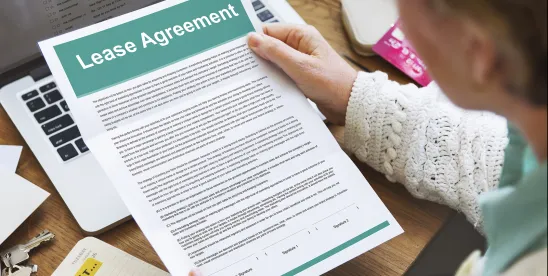In our ongoing series of blog posts, we have examined key negotiating points for tenants in triple net health care leases.
We also have offered suggestions for certain lease provisions that will protect tenants from overreaching and unfair expenses, overly burdensome obligations, and ambiguous terms with respect to the rights and responsibilities of the parties. These suggestions are intended to result in efficient lease negotiations and favorable lease terms from a tenant’s perspective. In our previous posts, we considered the importance of negotiating initial terms and renewal terms, operating expense provisions, assignment and subletting terms, and maintenance and repair obligations. This latest post focuses on negotiating holdover provisions. Holdover provisions should be carefully negotiated in order to limit a tenant’s liability for expenses arising from unforeseen circumstances.
What happens if a tenant does not vacate on lease expiration without having negotiated a renewal or a new lease? Circumstances may arise which interfere with a tenant’s ability to vacate premises in a timely manner, such as delays in new space being ready for occupancy or delayed or terminated negotiations with respect to a lease for intended new space.
Most commercial leases provide that tenants in holdover will be month to month tenants or tenants at sufferance and will pay a holdover rental rate which is usually 150% to 200% of the monthly base rent payable during the month prior to lease expiration. Sometimes landlords include in the lease extraordinarily high holdover rental rates and/or seek to make the holdover rental rate apply to additional rent as well as base rent. Tenants should push back in these instances, to obtain a reasonable holdover rental rate that only increases the base rental obligation, while the obligation to pay additional rent remains as provided for in the lease prior to expiration.
Tenants also may want to push for a grace period during which base rental remains the same as during the last month of the term before the holdover rate kicks in, after which a moderate increase occurs for another specified period before the full holdover rate applies. For example, the first three months after expiration of the lease term would remain at the prior base rent, after which the holdover rental rate would take effect.
Landlords also routinely seek to hold tenants responsible for all damages that landlord may incur as a result of the tenant’s holdover, including lost rent from a potential new tenant. Tenants should try to limit exposure to such damages by negotiating that the holdover rental rate is landlord’s exclusive remedy or that responsibility for such damages will not apply until holdover has continued beyond a certain length of time.
Negotiation of holdover provisions is important in order to limit tenant exposure to high penalties and costs, particularly in situations where a tenant may not have the ability to vacate for reasons beyond its control. As with other key lease terms, we recommend detailing the basic understanding of the parties with respect to holdover in a term sheet in order to clarify expectations of the parties, which will save time and money by streamlining negotiations, and ideally achieve an overall efficient lease negotiation process.
In our next post, we will cover the importance of negotiating surrender provisions and will offer suggestions for making expectations clear and limiting tenant obligations for removal of alterations on lease expiration, especially specialty alterations.




 />i
/>i
